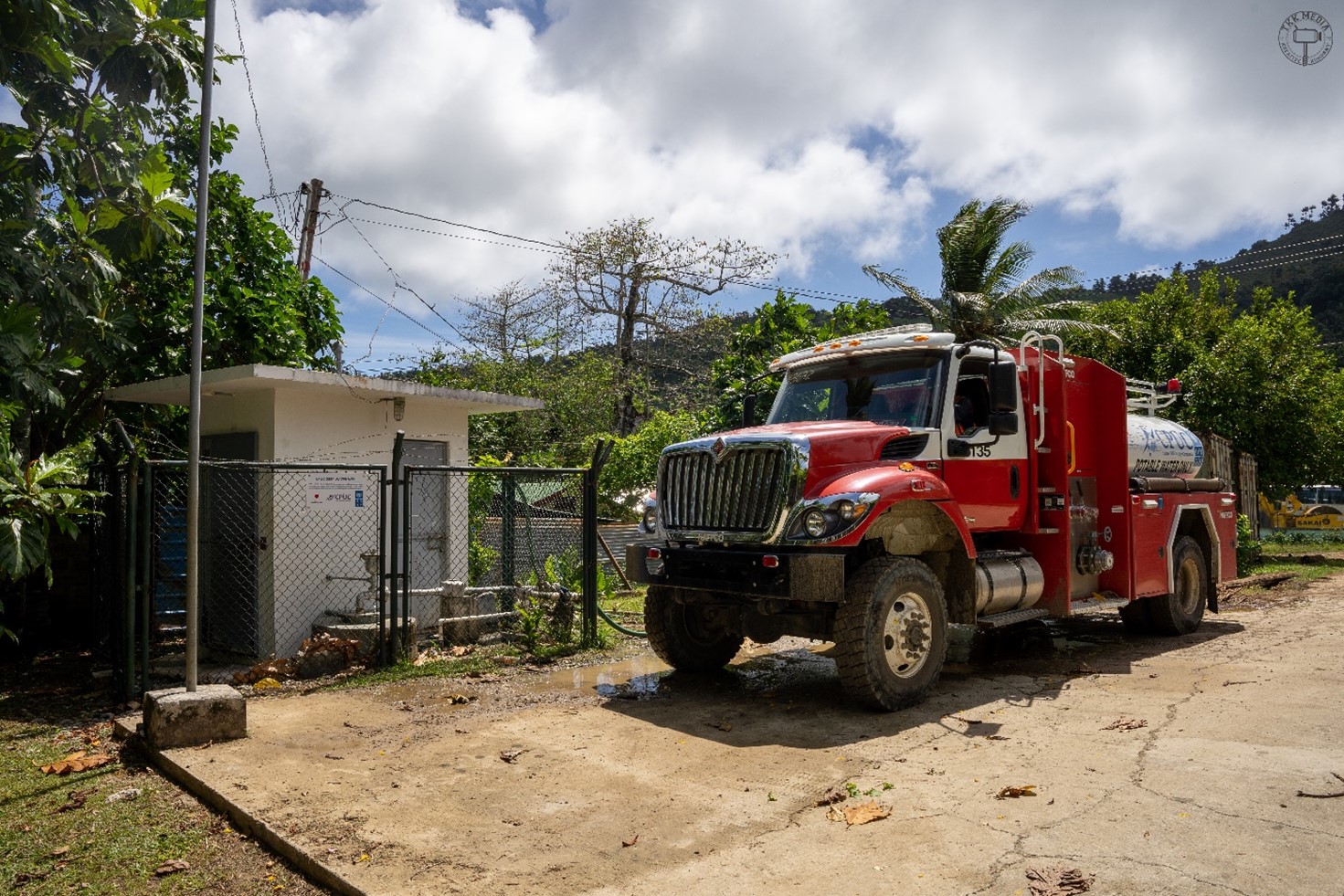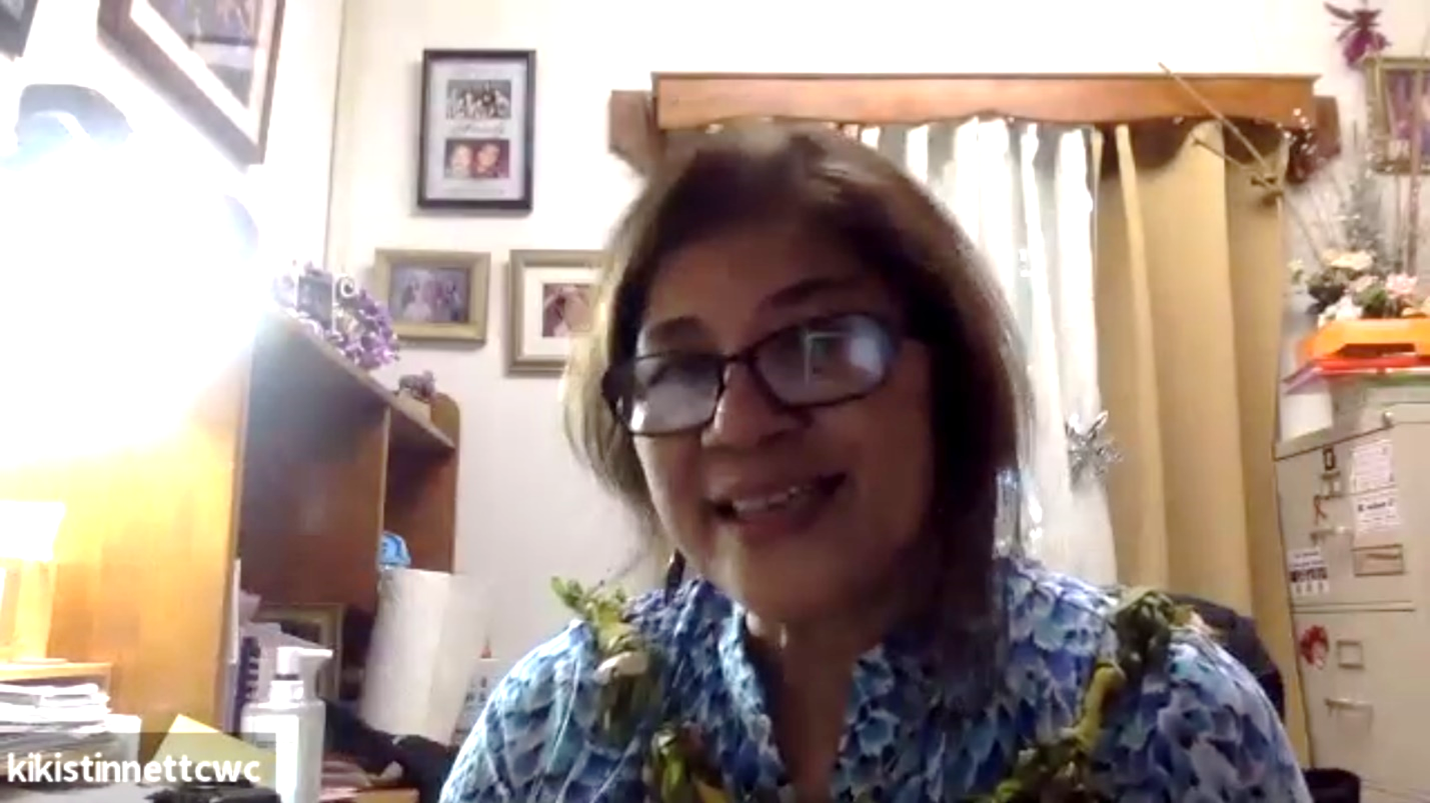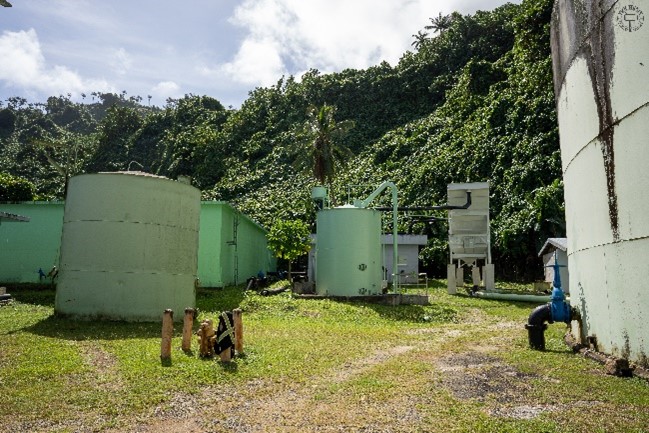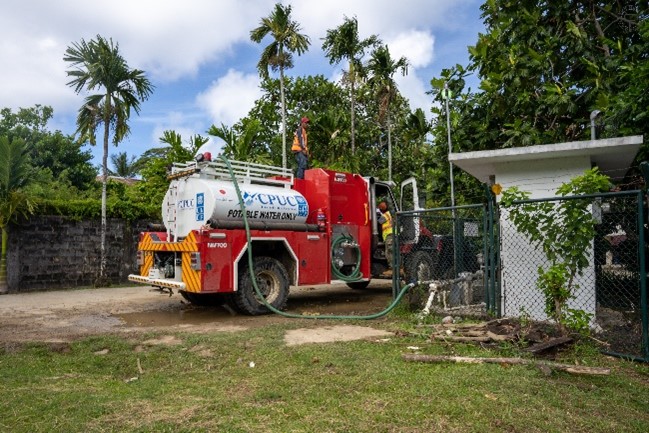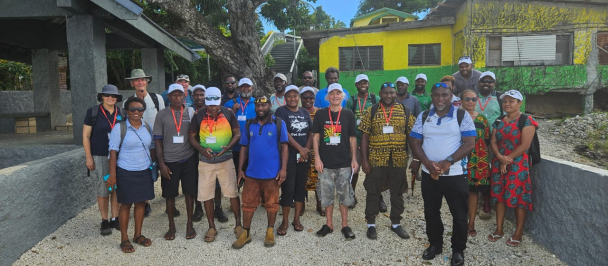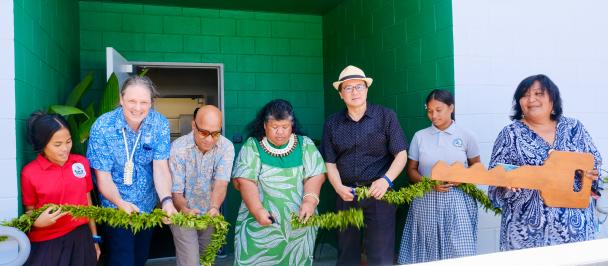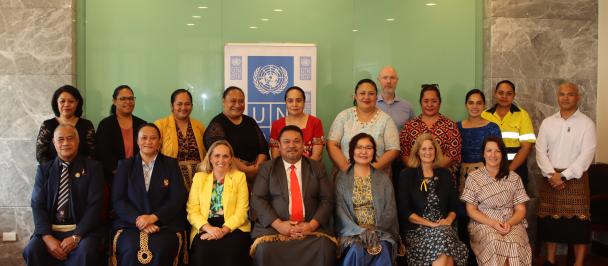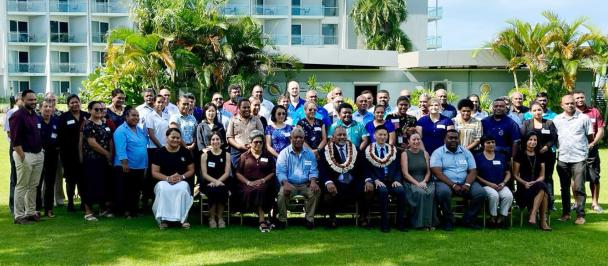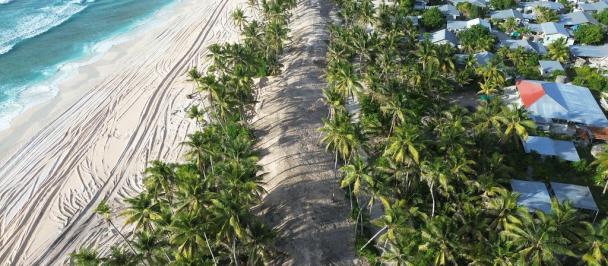Rehabilitated deep well and water tanker in the Chuuk State (Photo: CPUC)
Access to public water supplies and sanitation services in Chuuk State of the Federated States of Micronesia (FSM) is limited. The 2010 National Census reported that 7 percent of households obtained drinking water from the public water supply systems. The public water supply operated by the Chuuk Public Utility Corporation (CPUC) produces 2,500 cubic meters of water per day, of which 95 percent is sourced from deep wells.
To improve access to safe water and sanitation, CPUC with support from the UN Development Programme (UNDP) through the Japan-funded Enhancing Disaster and Climate Resilience (EDCR) project has implemented the rehabilitation of 14 primary deep wells and a water treatment plant and begun to use a portable water tanker. Despite unprecedented disruption caused by the COVID-19 pandemic, the project was successfully completed in August 2021, which has benefited 3,898 people, including 1,976 men and 1,922 women in the Chuuk State.
Ms. Kiki Stinnett, the former president of the Chuuk Women’s Council during her online interview with UNDP (Photo: UNDP)
Safe and clean water for all
The late Kiki Stinnett, the former president of the Chuuk Women’s Council who was one of the key stakeholders for the project reflected on her experience and lessons learned from the project during the online interview conducted by the UNDP team in November 2021.
“Now we enjoy our comfort of having water and coming straight homes not worrying about collecting water, which was very time-consuming and arduous. Even if we have any issues with the deep wells, we have CPUC’s tanker that delivers water to us. This especially makes lives of mothers and care givers easier as they now can spend more time to do other things.”
Before the project, people of Chuuk State had to set a time, often during the night, to collect water and it took them 4-6 hours to fill in their water storages. This put women and girls who are often responsible for household water supply at increased risk of abuse and attack as they would make their way in the darkness from the water sources.
Having experienced three major droughts since 2016, the rehabilitation work on the deep wells and the water treatment plant as well as the water tanker provided with support from the project have proven to be timely in advance of the dry season.
Community ownership enhancing the sustainability of the project
CPUC in collaboration with other key stakeholders, including the Chuuk Women’s Council set up the Water Committee. The Committee has been conducting regular meetings to discuss on-going water projects and progress on various water supply issues. Ms. Stinnett emphasized that community ownership is a key to ensuring the sustainability of the project.
“We need capacity building for our people to keep up with the maintenance and the operations of the deep wells and other resources. We also need support for other islands to improve their existing resources because at the end of the day, the community takes care of the resources invested. We are Small Islands Nations with limited resources. We have to figure out among ourselves by being open-minded and willing to share our resources with others.”
Increased access to clean and safe water through resilient and inclusive water facilities is vital for community resilience in Chuuk State. Although the project was completed, the Chuuk community will continue to work from within and with other partners to keep this work going.
Kevin Petrini, Deputy Resident Representative and Country Manager of the UNDP Pacific Office in the Federated States of Micronesia appreciated the efforts made by CPUC which implemented the rehabilitation of the deep wells and the water treatment plant. He further added that such intervention will contribute to improving water resources particularly during emergency situations in Chuuk State, which is vulnerable to the effects of droughts and flooding.
The UNDP EDCR project in FSM, which is supported by the Government of Japan in partnership with the Government of FSM was initiated in March 2019. The overall project goal is to effectively address the consequences of, and responses to, geo-physical and climate-related hazards to protect lives, sustain livelihoods, preserve the environment, and safeguard the economy. The project aims to strengthen gender sensitive disaster communication and climate monitoring systems; enhance gender sensitive national and state disaster responder’s readiness capacity; and enhance community disaster resilience through improved water resource management and integrated gender and social inclusion awareness.
Water treatment plants rehabilitated with support from the UNDP EDCR project (Photo: CPUC)
Water tanker provided by the UNDP EDCR project (Photo: CPUC)
For more information, please contact:
Takiko Ifamilik, Finance and Administrative Officer, Enhancing Disaster and Climate Resilience in the Federated States of Micronesia Project, UNDP Office in FSM, Tel: +(691) 320 4456, Email: takiko.ifamilik@undp.org
Summer Lee, Partnerships and Communications Specialist, Governance for Resilient Development in the Pacific Project, UNDP Pacific Office in Fiji, Mob: +(679) 866 2945, Email: summer.lee@undp.org

 Locations
Locations